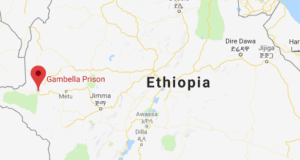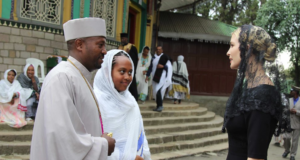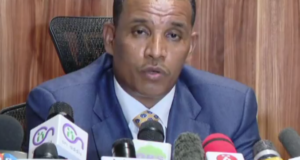Roadmap for transition and constitution making in Ethiopia
September 26, 2016, 2016
Vision Ethiopia, an independent network of Ethiopian scholars and professionals, in collaboration with the Ethiopian Satellite Television and Radio (ESAT) is pleased to make the 2nd and final call for papers for a conference which will be held on October 22 & 23, 2016 in Washington D.C. at the Georgetown Marriot Hotel. Abstracts and preferably the entire papers must be sent to  visionethiopia2016@gmail.com on or before Friday, September 30, 2016.
visionethiopia2016@gmail.com on or before Friday, September 30, 2016.
The recent developments in the country makes it imperative for all concerned citizens and the world at large to recognize that the crisis is getting deeper and deeper, and TPLF/EPRDF’s response is only making matters go from bad to worse. Tensions are dangerously high and the TPLF/EPRDF is gradually losing both control and legitimacy, more notably in the Amhara and Oromia regions where the vast majority of Ethiopians are located. New and local leadership is coming out from the resistance, apparently with inspirational and mature slogans. Protestors have symbolically begun removing the barriers, gimmicks and shackles of the TPLF/EPRDF. These developments need ensuring so that the predominantly peaceful resistance against the dictatorship does not gravitate into anarchy that target certain ethnic groups, and threatens the sovereignty and unity of the country. In sum, like most popular revolutions, the “Ethiopian Spring” is moving at its own pace and has brought new challenges and opportunities. The task of independent scholars and professionals, and leaders of civic, political and religious organizations is to find ways and means of easing the challenges of transition.
At its April 16, 2016 regular meeting, the board members of Vision Ethiopia made the second and final assessment of the March 26-27, 2016 conference, and reaffirmed that the theme of the forthcoming conference should be linked to the second conference and serve as forum for further development of the key challenges of transition. More than any time in the Ethiopia’s history, reversing the ongoing slaughter of citizens by the extremist wing of the TPLF, in particular, and ushering an end to government-led violence and heavy-handedness, in general, have become paramount. Drawing strategic roadmap for conflict resolution, and instruments for transition, national unity and democracy have become both necessary and timely. Participants of the second conference correctly defined that Ethiopia’s post conflict transition starts with the releasing of the country’s institutions from their captured status. The challenge is about accelerating the quest for freedom while reducing the cost, and installing a care-taker leadership team that can be trusted by the people. The primary mission of the care-taker leadership team should be to maintain law and order, rebuild social harmony, prepare the country for truth and national reconciliation and for an unfettered free and fair election as quickly as possible. Useful ideas of transition are welcome from all corners, including from TPLF/EPRDF supporters.
Members of Vision Ethiopia believe that drawing a strategic roadmap is a multi-dimensional process, particularly for a country immersed with many cleavages, be they political, economic, ethnic or geopolitical. Vision Ethiopia believes addressing the challenges and mending the cleavages would require active participation from and contribution by all concerned, regardless of their political, religious or ethnic affiliations. Hence, consistent with its mission, Vision Ethiopia is looking for well thought out contributions from various segments of the Ethiopian society, including but not limited to scholars, professionals, and civic and political organizations. We particularly invite historians, sociologists, political scientists, public administration and constitutional experts, defense and security analysts, conflict resolution experts and mediators, and experts in transition and peace keeping; asking them to join their energies so that the synergies may contribute towards conflict resolution and successful transition to a democratically elected government of national unity as quickly as possible. Authors are required to prepare documents that are publicly presentable and ready to disseminate.
We urge authors and presenters to avoid technical jargons, anecdotal evidence and utopianism, but instead use simple and understandable languages, and make their themes multi-cultural. Accepted abstracts and papers, program details and presentation guidelines will be announced in early October. Authors must be available at the conference venue to make their presentation. All presentations will be recorded,exclusively by ESAT, and transmitted to viewers around the world.
 The Ethiopian Satellite Television and Radio (ESAT) No. 1 Ethiopian news media: Esat, Ethiopian news, daily Ethiopian news, ESAT tv, ESAT Radio, Ethiopia
The Ethiopian Satellite Television and Radio (ESAT) No. 1 Ethiopian news media: Esat, Ethiopian news, daily Ethiopian news, ESAT tv, ESAT Radio, Ethiopia





